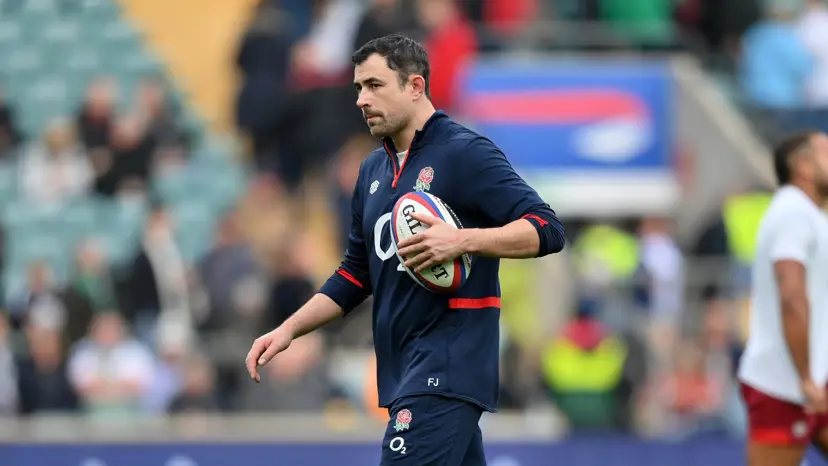Views: 59
The announcement of Felix Jones rejoining the Springbok management team was met with a range of reactions, many of which seemed to miss the bigger picture. Some fans and commentators speculated that the move was part of a larger “master plan” orchestrated by Rassie Erasmus, claiming it was an act of espionage. However, the truth behind Jones’ return is far more logical and deeply tied to personal and professional factors.
Felix Jones’ Departure from the Springboks
After the Springboks’ triumph in the 2023 Rugby World Cup, Felix Jones left the team to return to the northern hemisphere. He took up a coaching role with the England national rugby team, initially tasked with coaching their attack. However, Jones eventually moved to the role of defence coach, a position he excelled in, applying a blitz defence system that significantly boosted England’s performance.
England’s defensive play improved under Jones, but after their tour to New Zealand in July, he announced his decision to leave the team. Following this, England placed Jones on “gardening leave,” which meant he continued contributing to the team’s strategic efforts from home.
Jones’ Impact on England and the Return to the Boks
During his time with England, Jones played a key role in the team’s upward trajectory. However, England’s performance declined during the autumn internationals, particularly in the defence department. This highlighted the valuable contribution Jones made to their improvement. Despite some critical social media reactions when Jones was announced to rejoin the Springboks, the move makes perfect sense when you look at the broader picture.
Rassie Erasmus’ Perspective: No Espionage, Just Valuable Insights
Rassie Erasmus, the Springboks’ director of rugby, addressed the speculation at a press conference in Cape Town. He explained that Jones’ insights, gained from working closely with England and analysing teams like France, Ireland, and others in the Six Nations, would be invaluable to the Springboks. The notion that Jones’ return was part of a covert strategy to spy on England is far-fetched. Erasmus himself acknowledged the value of Jones’ knowledge, which will benefit the Boks as they prepare for future competitions.
Erasmus further pointed out that the decision to bring Jones back was influenced by his family’s desire to settle in South Africa, a factor that was critical in Jones’ initial departure. With his family now relocating with him, it was a natural decision for Jones to rejoin the Springbok team, which he had enjoyed working with for several successful years.
Felix Jones’ Expanded Role with the Springboks
Jones’ return is more than just a reunion with the team—it’s a strategic move to enhance the Springbok coaching setup. Erasmus outlined the varied roles Jones will take on, including overseeing player roadmaps, contributing to tactical analysis, and assisting Mzwandile Stick with off-the-ball work. Jones will also play a significant role in the administrative side of the team, making the lives of other coaches easier.
While Jones is primarily focusing on the senior national team, he will also work with the Junior Springboks and the Springbok Women’s team, ensuring a consistent coaching standard across all national levels. This broader remit, as confirmed by SA Rugby CEO Rian Oberholzer, will be a significant advantage for South African rugby.
The Coaching Matrix and Team Dynamics
The Springbok coaching team operates within a structured coaching matrix. Each coach has a specific area of responsibility, from scrums and lineouts to defence and general attack strategy. Jones’ expertise will enhance the team’s ability to break down opposition tactics and further refine the Springboks’ game plans.
The current coaching staff includes forwards coach Deon Davids, attack coach Tony Brown, defence coach Jerry Flannery, and World Cup winner Duane Vermeulen, who all contribute to various aspects of the game. Jones will work closely with these individuals, ensuring that the team remains competitive at the highest level.
A Family-Centered Decision: Jones’ Personal Return
Jones’ decision to return to South Africa was not just about rugby. Erasmus highlighted that Jones’ family had played a crucial role in the decision-making process. His family had chosen to remain in Ireland during his initial stint with England, but now that they are relocating with him, it only makes sense for Jones to rejoin the Springboks. This personal aspect of Jones’ return provides context to his decision and underscores the importance of family in professional sports.
Jones’ Enthusiasm for His Return
In a statement released by SARU, Jones expressed his excitement about rejoining the Springboks, saying that South African rugby “holds a special place in my heart.” He looks forward to contributing to the team’s success as they prepare for the 2027 Rugby World Cup. Jones also mentioned that he has worked closely with several members of the coaching staff in the past, including Jerry Flannery, which will make his transition back into the team smoother.
Conclusion: A Strategic and Personal Return
Felix Jones’ return to the Springbok management team is a positive and strategic move, driven by both professional and personal factors. His time with England has equipped him with invaluable experience, and now he is ready to help the Boks build on their success. Despite the controversy and speculation, Jones’ return is a testament to his expertise, commitment to the Springboks, and his desire to contribute to the future of South African rugby.

